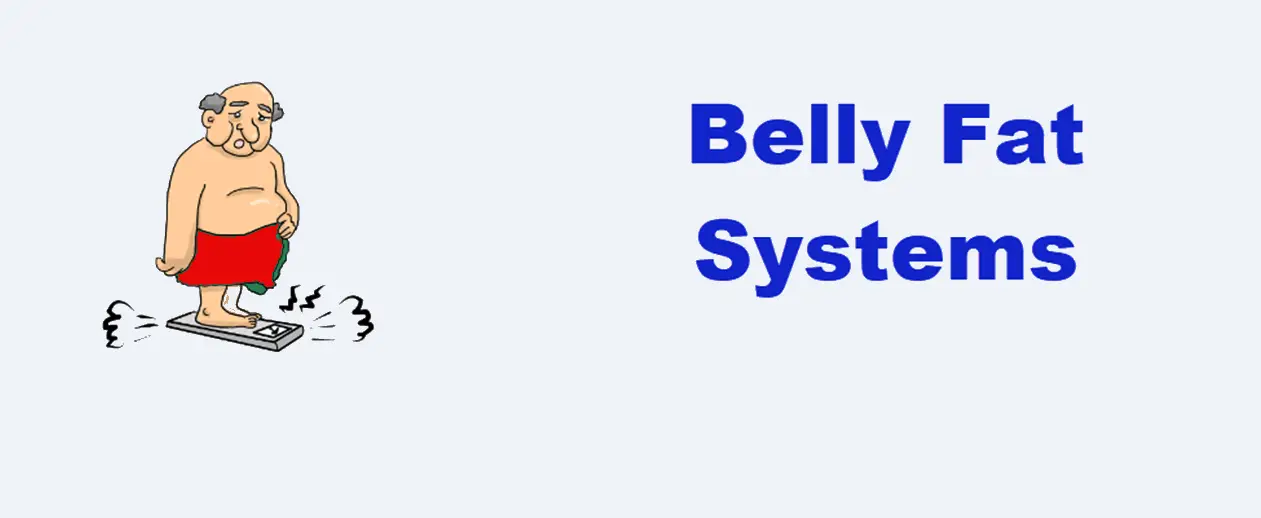
Belly fat is a problem that many people, particularly after age 40, struggle with. Genetics and hormones may play a role here as well.
But, the good news is that you don’t have to endure this condition forever. With small adjustments to your eating and exercise habits, you can permanently end your struggle.
Exercise
Exercise is one of the most efficient methods for burning belly fat. Not only does it help you shed extra calories and build muscle, but it can also boost your metabolism and keep you feeling energized. Furthermore, exercising may prevent obesity-related health problems like high blood pressure and heart disease.
Before beginning any exercise program, always consult your doctor first, particularly if you have health concerns. They can advise on safe and sustainable levels of activity, durations and formats that fit within the context of your goals.
According to Certified Personal Trainer TJ Mentus, a great way to begin losing belly fat is 30 to 60 minutes of moderate-intensity physical activity almost every day. This can include cardio exercises like walking, jogging and swimming as well as weight training.
Sleep is another essential factor for losing belly fat and maintaining overall good health. Studies show that those who get less than five hours of sleep per night tend to gain belly fat more rapidly, as well as have difficulty in the process.
Another essential element of any comprehensive weight loss plan is proper and consistent nutrition. Eating more fiber, protein and healthy carbs each day will help you burn belly fat and ultimately shed pounds overall.
It’s also essential to reduce your intake of sugary and fatty foods and drinks, such as sweets, sodas, alcohol and heavy smoothies. Studies have linked these items with higher levels of visceral fat which has been linked to health problems like heart disease and diabetes.
You can increase your daily exercise routine by taking short walks throughout the day or adding high-intensity interval training (HIIT) into it. This type of activity helps build strength, endurance and stamina so you can perform more intense and lengthy exercises in the future.
In addition to cardio, you should incorporate resistance training into your exercises for increased lean muscle mass and an increase in metabolic rate. Try using heavier weights with fewer repetitions and resting between sets to get the most out of fat-burning effects.
Diet
Losing belly fat can be achieved through diet and exercise, with the latter providing additional health benefits as well. With proper nutrition and regular physical activity, diet can help reduce belly fat while improving overall wellbeing.
The key to losing belly fat is creating a calorie deficit, or eating less than you burn. To do this, incorporate lean proteins, fruits and vegetables, whole grains as well as healthy fats like avocados or nuts into your meals.
Additionally, steer clear of foods high in saturated fats, refined carbohydrates and sugar. These types of meals can make weight loss challenging since they contain empty calories.
Another essential factor to keep in mind is consistency with your exercise and diet routine. Otherwise, it will be more challenging to see results in terms of physical appearance; this could lead to frustration and feelings of failure.
For optimal weight loss and increased caloric expenditure, incorporate moderate-intensity activities like walking, running or swimming into your weekly regimen.
Additionally, incorporate plenty of fresh fruit and vegetables into your meals; they are low in calories but high in fiber which will help you feel fuller for longer and thus reduce your food intake.
Additionally, it is essential to reduce added sugars and processed foods that are high in saturated fats and salt. Doing so may raise your blood pressure, increasing the likelihood of heart disease or diabetes.
Dietary experts recommend that you consume about 30% of your daily calories from protein, complex carbs and healthy fats. These nutrients supply your body with energy and help to increase metabolic rate.
To combat hunger, have smaller meals more frequently throughout the day. Doing so will ensure that you’re not starving yourself and can easily shed some pounds.
Reduce your appetite by eating more fiber-rich foods such as whole grains, nuts and seeds. These can be eaten as a snack or part of a meal for quick weight loss results and improved digestion.
Sleep
Sleep is essential for good health, and lacking it can make weight loss more challenging. Sleep has many benefits such as increasing fat burning rates and decreasing your risk of heart disease, diabetes and other serious medical issues.
For optimal sleep, establish a regular bedtime and try to go to bed at the same time every night. Furthermore, avoid screens or other light sources as these may disrupt your natural sleeping patterns.
While sleeping, your body goes through four distinct phases: non-rapid eye movement (NREM) sleep, rapid eye movement (REM), deep sleep and waking. Of these four, REM sleep is considered to be the most crucial as it allows us to dream more clearly and improve memory retention.
NREM sleep is characterized by light eye movements, slowing and stopping of brain waves and reduced muscle tone. As you transition into REM sleep, the eyes move rapidly behind closed lids and your brain waves return to those experienced during wakefulness.
In REM sleep, your breath rate increases and muscles become paralyzed as your brain processes dreams. This stage typically lasts around 30 minutes and repeats three or five times per night.
The REM phase of sleep is followed by deep sleep or ‘delta’ stage. This stage features slow breathing, low blood pressure and a slow heart rate; it’s essential for growth and repair.
A study published in Annals of Internal Medicine has revealed that sleep deprivation impairs energy metabolism for humans, leading to weight gain and other chronic health problems. They observed that people who slept less than eight hours per night had lower insulin sensitivity compared to those who got 9 or more hours of rest nightly.
Sleep plays an integral role in controlling your metabolism, aiding weight loss efforts by burning off belly fat more rapidly and keeping you alert in the morning – making it easier to start your daily exercise regimen. In addition, getting enough shut-eye can regulate appetite and stress levels – helping you control those extra pounds while keeping them off for good.
Stress Management
Stress is an inevitable part of life, yet it can have a detrimental effect on your wellbeing. It may cause physical and psychological symptoms like headaches, stomach upset, or sleep issues – just to name a few!
The good news is that there are ways to manage your stress.
Everyone experiences stress from time to time, but prolonged strain can have detrimental effects on your body, such as weight gain and an increased risk for diabetes, heart disease and other illnesses.
Due to stress, some individuals may even experience a weakened immune system.
One way to manage stress is through breathing exercises, meditation or mindfulness. Doing this helps your body release its stress hormones in a healthy manner and makes you feel better overall.
One important stress management strategy is quitting smoking. Smoking has been linked to increased abdominal fat and other serious health risks, so if you haven’t already, make it a priority to quit now.
Additionally, make sure you get enough exercise every day. This will help regulate your cortisol levels and reduce any extra belly fat you may have.
It is essential to limit trans fats and vegetable oils, as these can contribute to inflammation in the body. These can interfere with hormones that control appetite, leading to more belly fat accumulation.
Consider eating more fruits and vegetables, as they contain fiber that can help lower your blood pressure and cholesterol. Furthermore, these produce are packed with antioxidants which may fight inflammation.
Finally, getting enough rest each night is essential for relieving stress and maintaining leptin and ghrelin levels that regulate hunger and appetite.
If your stress is interfering with your ability to get enough sleep, seek help from a counselor or friend. They can provide the motivation and understanding that you need in order to tackle stress and get back on track with goals!
Stress management can be an ongoing endeavor that takes some effort to master. But the rewards are well worth the effort!


